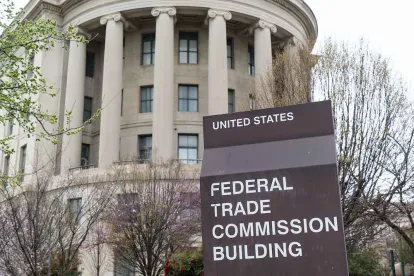Continuing our “On Notice” series about the FTC’s Notice of Penalty Offenses Concerning Endorsements, we address the FTC’s prohibition against using testimonials to (1) make or imply unsubstantiated or otherwise deceptive performance claims even if such testimonials genuinely reflect the endorser’s own experience, and (2) misrepresent explicitly or implicitly that the experience described by endorsers of a product or service “represents the typical or ordinary experience of users.”
The FTC cited several prior decisions in support of its Notice, including:
-
Cliffdale Assocs., Inc., 103 F.T.C. 110 (1984). The advertiser used testimonials to make performance claims for a device that supposedly improved fuel economy for automobiles. The testimonials included statements by users about their fuel saving experiences. The FTC found that by printing the testimonials the advertiser “implicitly made performance claims” that the Commission had found to be false and deceptive. Therefore, “irrespective of the veracity of the individual consumer testimonials,” the testimonials themselves were deceptive.
-
Macmillan, Inc., 96 F.T.C. 208 (1980). The advertiser, LaSalle University, relied on endorsements by successful graduates in its ads. The FTC noted that “[t]hese testimonials created the impression that such success was ordinary and typical of LaSalle graduates.” Because the typical graduate did not experience the type of success represented in the testimonials, the FTC required the advertiser provide a disclaimer stating that “this testimonial does not reflect the typical or ordinary experience of [the student]” and required it be displayed “in print as large as that of the testimonial itself, adjacent to or integrated with the testimonial.”
-
Porter & Dietsch, Inc., 90 F.T.C. 770 (1977), aff’d, 605 F.2d 294 (7th Cir. 1979). An advertiser of weight loss tablets touted testimonials “reciting great weight losses achieved by users.” However, the advertiser could not substantiate that the results represented the ordinary experience of people using the tablets. The Commission therefore prohibited the advertiser from “[u]sing any testimonial…which reports a result unless the testimonial or a related disclosure in close conjunction therewith reveals clearly and conspicuously the typical or ordinary experience of members of the public with such product.”
The FTC’s Endorsement Guides echo those decisions and the recent Notice letter, stating that: “the advertiser must possess and rely upon adequate substantiation, including, when appropriate, competent and reliable scientific evidence, to support [] claims made through endorsements in the same manner the advertiser would be required to do if it had made the representation directly.” 16 CFR § 255.2(a). The Endorsement Guides provide the following example: if an advertisement for a cholesterol-lowering product features an individual who claims that his serum cholesterol went down by 120 points, the advertisement would be deceptive if the advertiser cannot adequately substantiate that the product can produce that result. Consistent with the general principle that a disclaimer cannot contradict the main claim, the FTC explains a disclaimer that “well-conducted clinical study shows that the product reduces the cholesterol levels of individuals with elevated cholesterol by an average of 15%” would not cure that deceptive message. 16 CFR § 255.2(a).
The Endorsement Guides also state that “[a]n advertiser should possess and rely upon adequate substantiation” for claims that “the endorser’s experience is representative of what consumers will generally achieve with the product or service in actual, albeit variable, conditions of use.” Absent such substantiation, advertisers must “clearly and conspicuously disclose the generally expected performance in the depicted circumstances.” 16 CFR § 255.2(b) The FTC has specified that statements like “Results not typical” or “Individual results may vary” are not enough to insulate advertisers from these obligations.
Issues of unsubstantiated or inflated performance claims in testimonials have come into the limelight in recent years, with the rise of influencer and social media marketing. For example, in 2020, the FTC reached a $1M settlement with Teami LLC, the maker of “detox” teas promoted by celebrities and well-known Instagram influencers. The FTC alleged that Teami’s influencers made a number of unsubstantiated health claims that do not represent the typical experience of the ordinary user. These include claims that Teami’s teas can help consumers lose weight, treat or fight cancer, clear clogged arteries, relieve migraines, and prevent common colds and the flu.
These portions of the FTC’s Notice of Penalty Offenses remind advertisers that it is not enough for an endorser’s opinion to accurately represent the endorser’s own experience. Advertisers should be careful to ensure that endorsers’ statements are substantiated, and are representative of what a typical or ordinary user can expect to experience.




 />i
/>i
